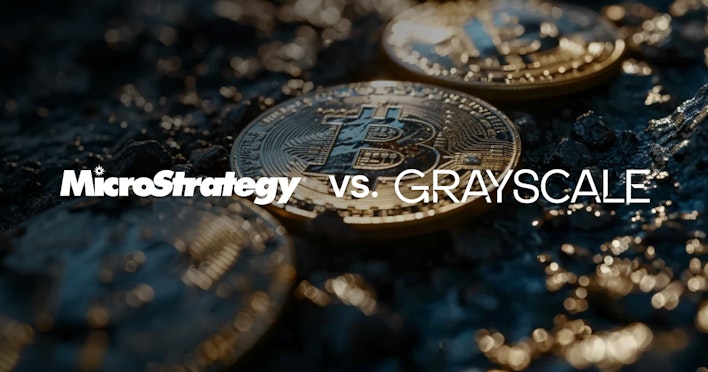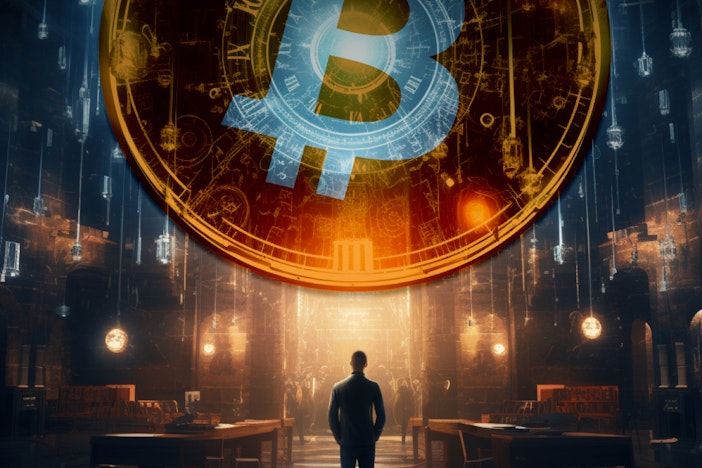What Happens to Bitcoin if the Internet Goes Down?
While the Internet is by far the most efficient system of communication for the Bitcoin network to use, it could continue on with the reduced speed and functionality on any communcations systems known to man.
Human beings grow up around tangible things. So it’s normal to find it strange to store your wealth in something you can’t see or touch. It’s also normal to be concerned that since you can’t touch Bitcoin or see it, maybe it can somehow be blocked or that it might just disappear altogether. Does Bitcoin live on the Internet, and if the Internet goes down, then does it just disappear?
To start, we should define what the “internet going down” actually means. Like Bitcoin, the Internet was designed for maximum survivability. It has no center. Any computer in the world running the Internet’s protocols, which are themselves open-source software that can connect to any other computer doing the same thing, is ‘on the Internet.’ It may not have access to every other computer on the Internet, but it really isn’t possible for the whole Internet to go down unless no computer in the world is running at all.

So when we talk about ‘the Internet going down, ’ we usually refer to something quite a bit different. Broadly speaking, the spectrum of scenarios includes:
Local Outages: a power cut or other technical problem causing electricity, data transmission or another critical service to go offline in a certain area until technicians can fix the problem;
Censorship: internet censorship where a company or government blocks selected parts of the internet but allows others to continue as normal; or
Total Collapse: some sort of unforeseeable technological problem that causes every single device in the world to go offline for an extended period of time.
Local outages of Internet service happen all the time. You’ve probably had your Internet connection ‘down’ for some time at some time in the past year. Or you may have experienced an outage of some service who themselves suffered some kind of temporary outage, like when all of Facebook’s services went down for over six hours on October 4th, 2021. If an outage like this was widespread in your area, you might be very annoyed, and your access to all kinds of services might be disrupted, including access to your bank website, the Visa payments network, and more. This is, as you’ve come to know, temporary.
If you are experiencing a local outage, your ability to spend your Bitcoins might be delayed until you can access the Internet again to transmit transactions to the network.
However, since Bitcoin is decentralized and runs all over the world, neither your ability to receive or store Bitcoin is impaired at all. Your stored Bitcoins remain stored and secure. And if you are signed up for regular recurring purchases to be sent to addresses you control, even if you do not have access to the Internet, your addresses will continue to receive the bitcoin you’re purchasing, which will then be available to you to spend when you regain access to the Internet.
Assessment: In the event of a local outage, you will be unable to spend your Bitcoin during the duration of a temporary local outage until you regain access to the Internet, but your funds are safe, and you will still be able to receive Bitcoin even without access!
In this sense, Bitcoin is more robust than Visa or your bank, in fact.
It is very hard, to the point of practically impossible, to censor or shut down Bitcoin. Bitcoin was designed to be “Censorship-resistant.”
The only things that are transmitted across the Bitcoin network are plain strings of text that comprise its transactions and blocks. Governments in various parts of the world have attempted to shut down Bitcoin locally, but none have succeeded.
A text message can, after all, be hidden by encryption, concealed in a photograph, spoken aloud, turned into a stream of ones and zeros, and countless other methods of concealment.

Individual Bitcoin transactions are just a few hundred bytes of information, and a whole Bitcoin block is smaller than the size of a photo taken on a smartphone. Being small and hard to identify (or easily conceal) makes censoring Bitcoin a hopeless task even for governments with considerable resources to attempt this.
Also, as soon as one steps outside the jurisdiction of any censor, they will be able to transact freely, with none of their savings having been affected by censorship at all since preventing someone from accessing the network does not in any way confiscate those coins or make them unspendable when service is restored.
Finally, Bitcoin’s mechanism intended for payments, The Lightning Network, is entirely encrypted and private. There is no way for any censor to even detect its usage, let alone prevent it.
Assessment: Censorship of Bitcoin does not appear to be feasible.
In the event of a total collapse of the Internet, the Bitcoin blockchain, which is the ledger of who owns what would be unaffected. The blockchain resides on tens of thousands of individual computers dispersed worldwide. It is run by anyone who wants to run a Bitcoin full node. Several of these are in underground nuclear and EMP-proof bunkers. Running a full node requires nobody’s permission and only needs about 500GB of disk space and around $200 worth of computer equipment. As long as one of these computers exists, your Bitcoin exists. An internet outage will not make your Bitcoins disappear.
Even if the Internet went down and stayed down, there are contingencies that Bitcoiners have planned for. Like with the censorship example above, there are ways around being unable to access even the Internet itself. It is possible to communicate Bitcoin transactions:
even via smoke signals, paper messages, or writing transactions and blocks on a billboard.
Unlike a credit card transaction, there is nothing secret in a Bitcoin transaction; any method that human beings can use to share information can be used to share Bitcoin transactions or network messages. While the Internet is by far the most efficient system of communication for the Bitcoin network to use, it could continue on with reduced speed and functionality on any communications system known to man.
Assessment: Even if the Internet did go down permanently (which would destroy much of modern civilization), there would be ways to route around this obstacle and keep Bitcoin operational since Bitcoin relies only on the transmission of text, and we have been transmitting text for longer than the Internet has been around.
Bitcoin is designed for maximum survivability, and so is the Internet. The Internet itself is extremely unlikely to go down permanently. Bitcoin is largely unaffected by temporary local outages of Internet service — with the only loss of service to those affected by outages being a temporary inability to spend their Bitcoin.
Bitcoin cannot be censored because it relies only on simple text transfer of very small bursts of information that can be easily concealed. Even in the event of a catastrophic and permanent shutdown of the Internet, there would be ways to continue to operate the Bitcoin network using less efficient text transmission technologies, including things like handwritten messages on paper.
Sign up to start saving Bitcoin
Buy automatically every day, week, or month, starting with as little as $10.
Rigel Walshe
Rigel Walshe is a software developer at Swan Bitcoin. He has a background in law enforcement and adult education.
Rigel also holds the record for the worlds longest distance offline Bitcoin transaction (12.6km). Originally from New Zealand he now lives in Latin America.
More from Swan Signal Blog
Thoughts on Bitcoin from the Swan team and friends.


MSTR vs. GBTC Compared: Which is Best in 2024?

By Drew
This article compares MSTR and GBTC, offering insights for investors by examining their features, benefits, performance, fees, and drawbacks, focusing on their role in Bitcoin investment strategies.


Changing Bitcoin: The Past, The Present, and The Future (Part One)

By Tomer Strolight
For Bitcoin to achieve the lofty goals many have for it, its rules will need to change. This three-part series of articles will tackle what it takes to change Bitcoin.


4 Reasons to Avoid Coinbase In 2024?

By Matt Ruby
The crypto platform is facing all kinds of problems. Is it time for customers to seek out an alternative?